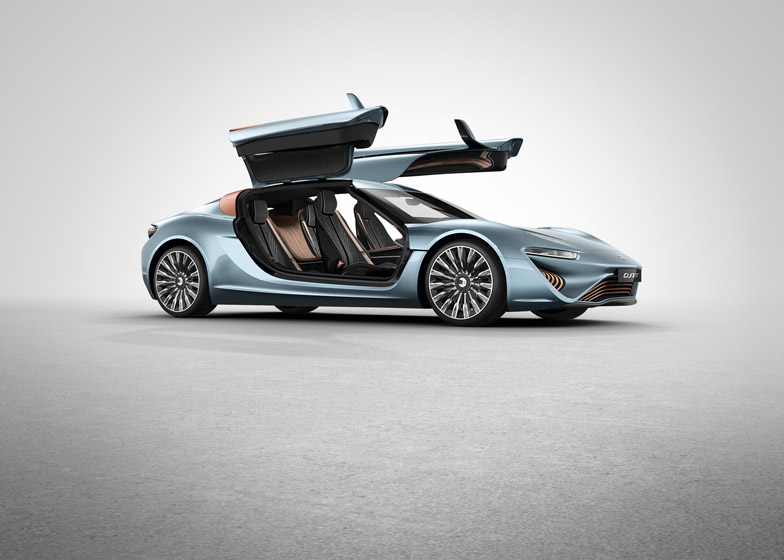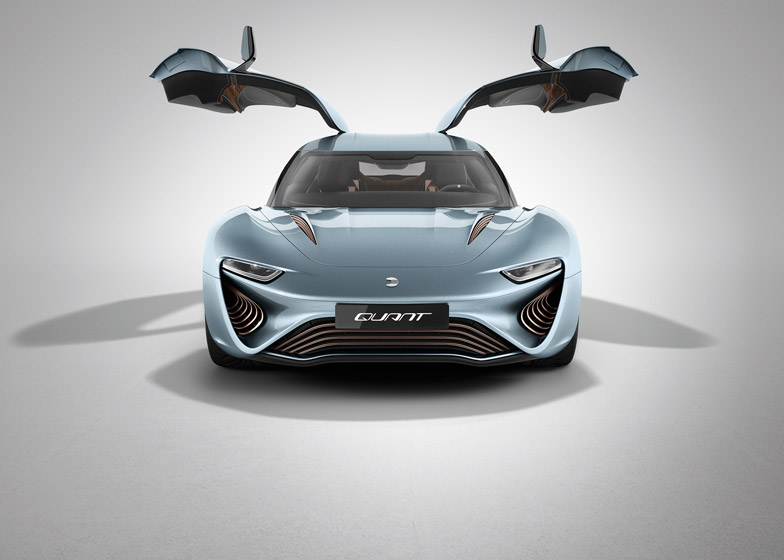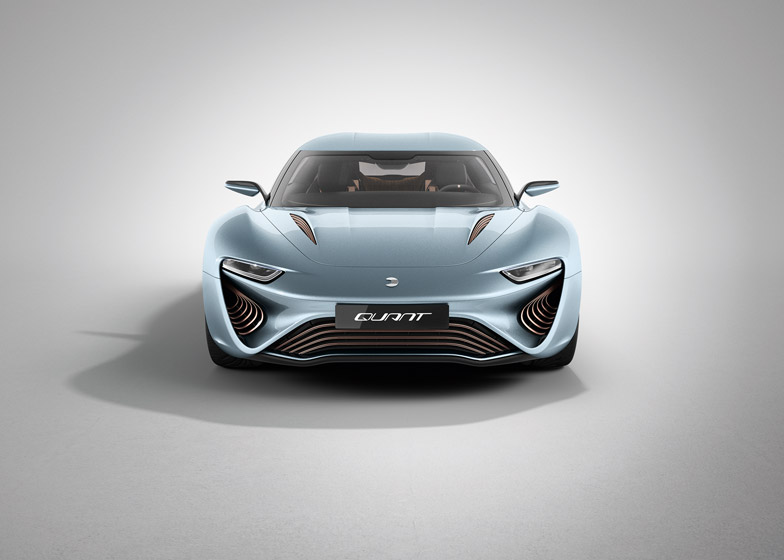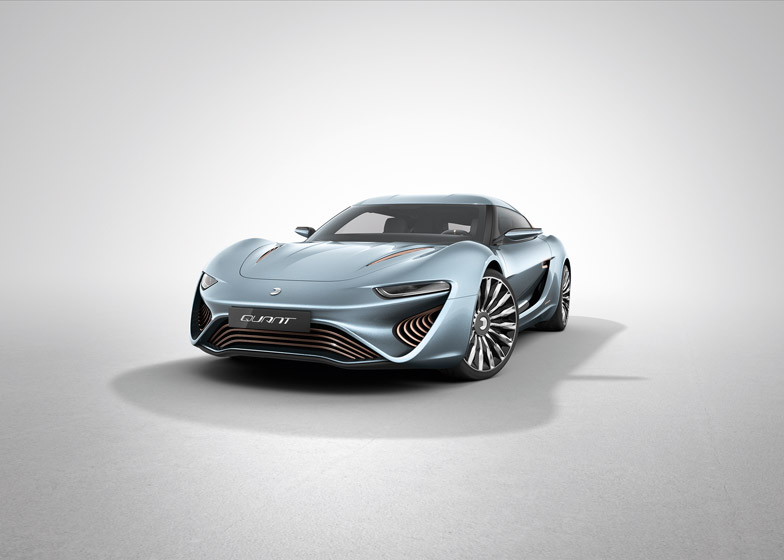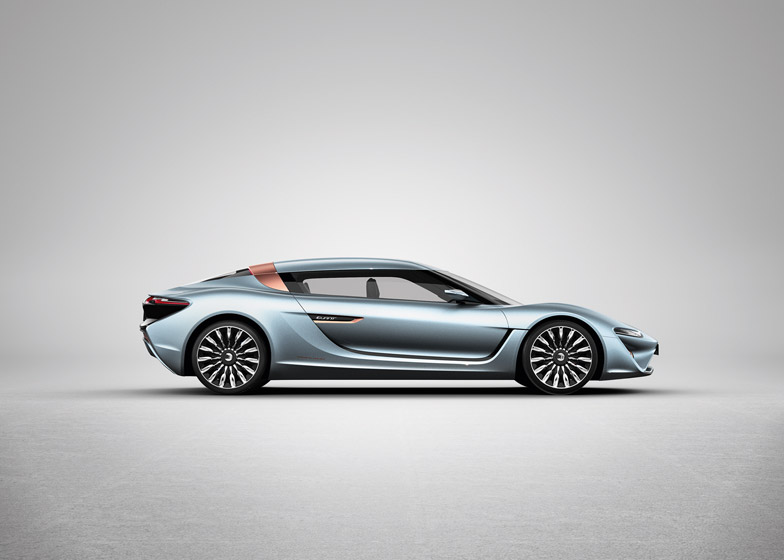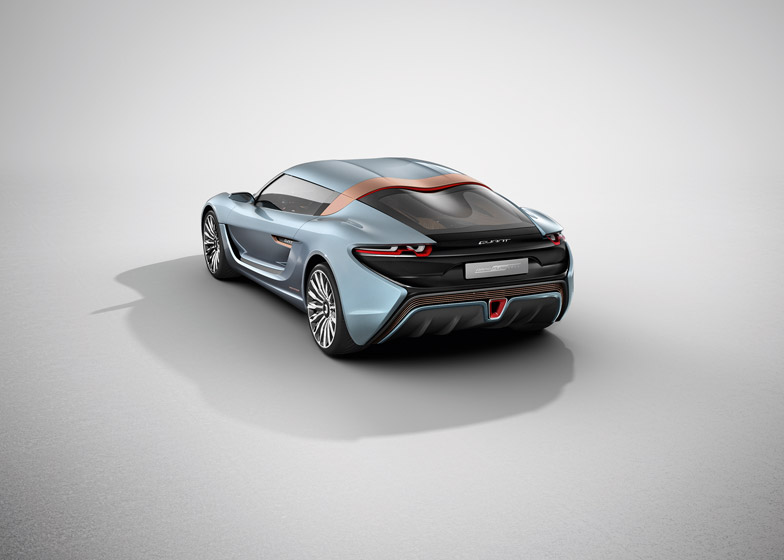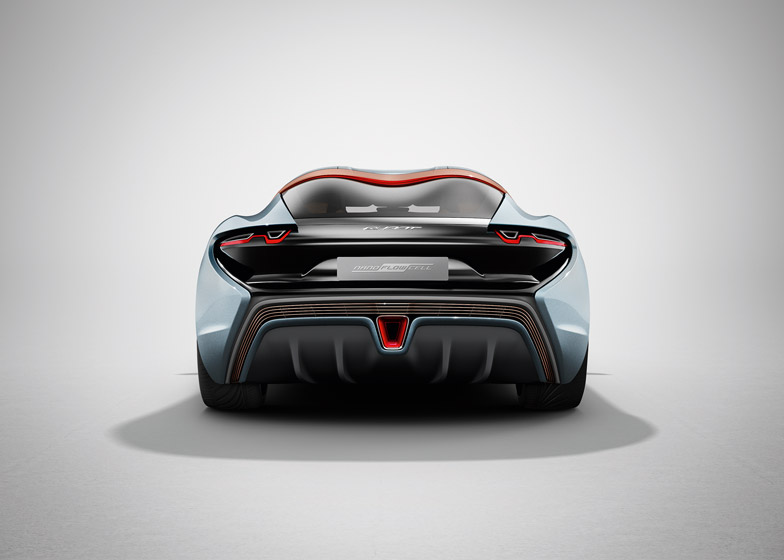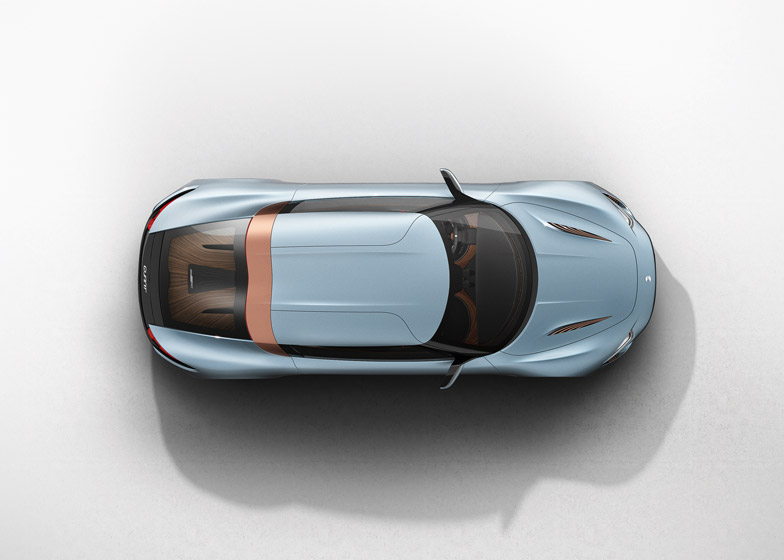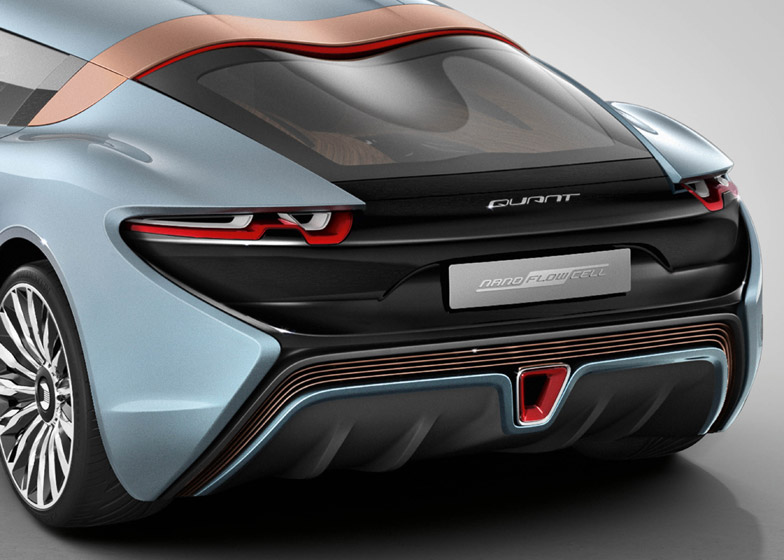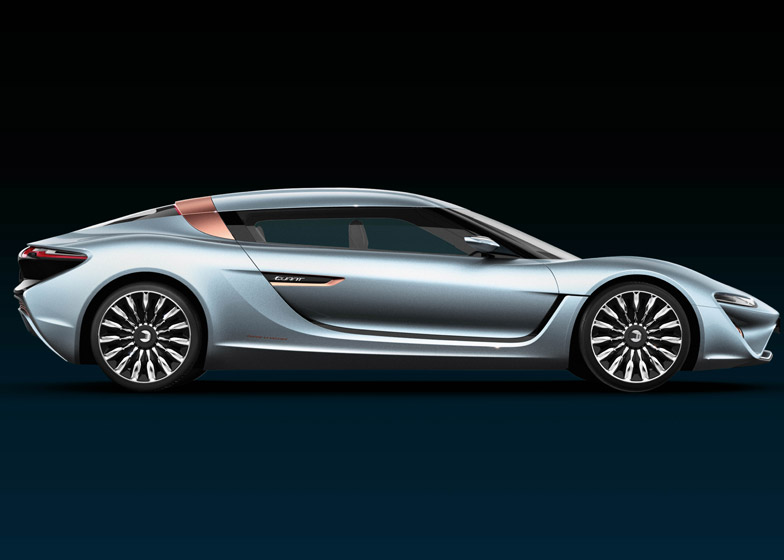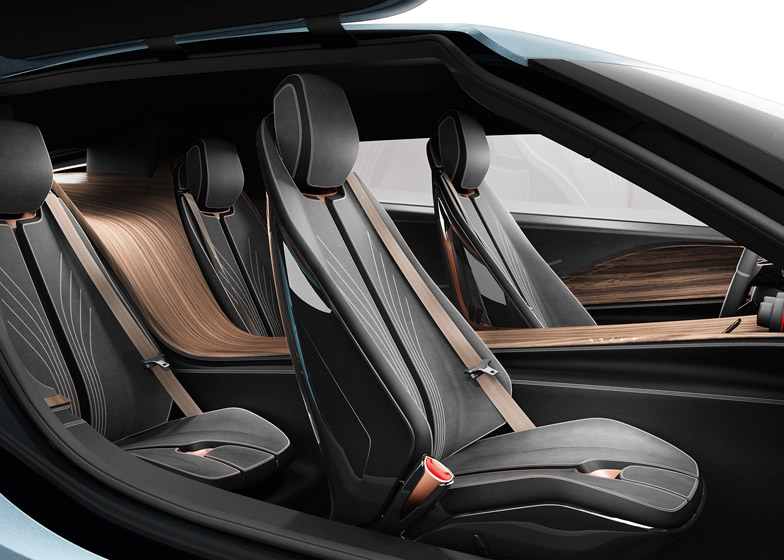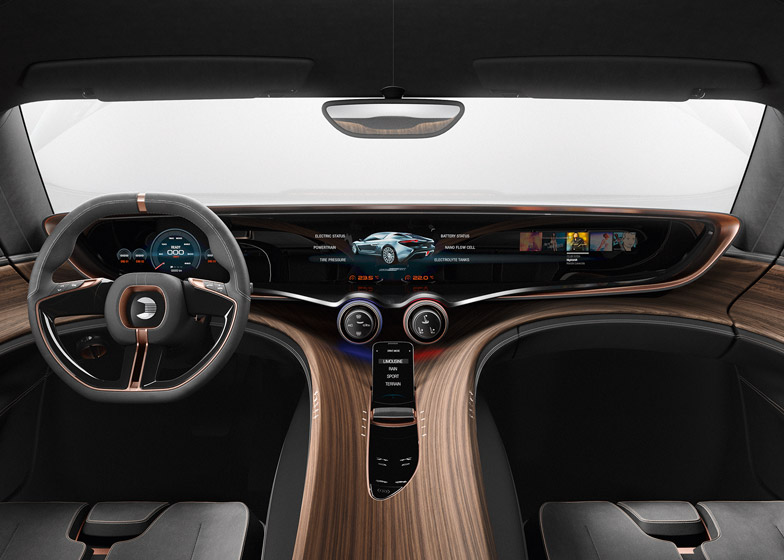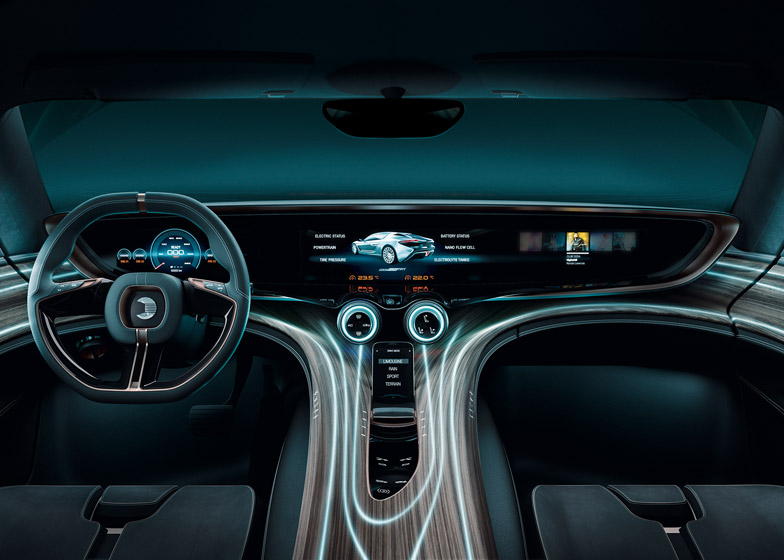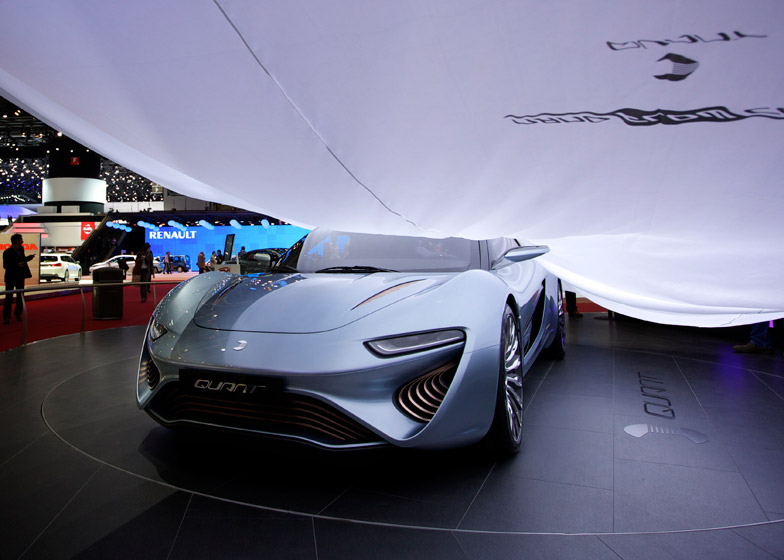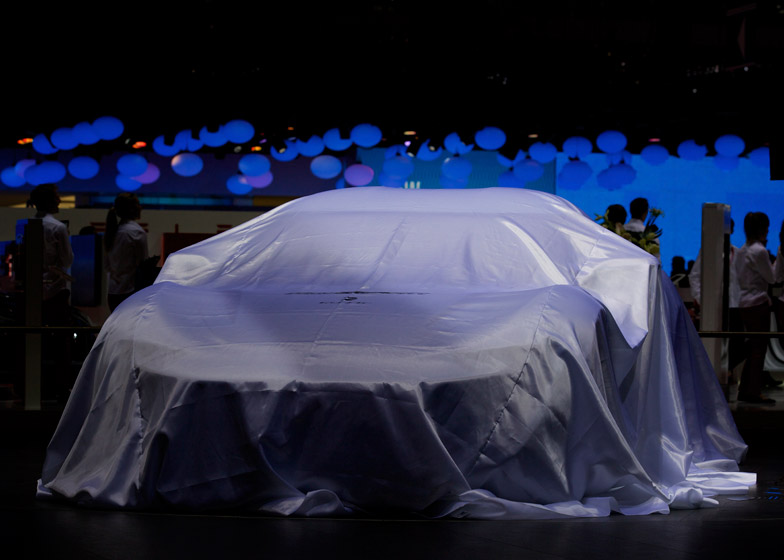News: a company that claims to have developed the first electric car powered by salt water says the vehicle has now been approved for testing on public roads in Germany and the EU (+ slideshow).
Nanoflowcell, which designed the Quant e-Sportlimousine, has received official approval to test its e-Sportlimousine on the roads from German industry certification organisation TÜV Süd.
In development for 14 years, the four-seated car measures roughly 5.25 metres in length and sports what its creators say is an entirely new kind of energy storage system, also called Nanoflowcell. The company claims that the automobile is capable of speeds of 350 kilometres per hour and acceleration of 0-100 kilometres per hour in just 2.8 seconds, and can travel distances of 600 kilometres with a full tank of a petrol made from a salt water solution.
An electrochemical reaction is created by combining two liquids with metallic salts acting as the electrolyte. These solutions are pumped through a fuel cell where an anode or cathode electrode is located, creating electricity that is then forwarded to super capacitors within the car.
Compared to conventional technologies, one litre of the salty liquid contains 400 times more energy than a typical lead-acid battery, and the prototype car carries two 200-litre tanks on board, the company states.
The Quant e-Sportlimousine concept made its initial debut at the Geneva Motorshow 2014, where it was met with some scepticism by critics. A separate Quant car had appeared at the same show in 2009 but never made it to market.
However, the news that the vehicle has been deemed safe for public roads has prompted renewed interest in the prototype.
According to Nanoflowcell’s Nunzio La Vecchia, the firm has partnered with German electronics company Bosch Engineering GmbH to further develop the technology, and it hopes to release four more prototypes throughout 2014.
"Transforming an initial prototype into a series-production vehicle that can be used around the world is a big challenge," La Vecchia said in an interview. "We are certain that we can manage it with this established and experienced partner."
La Vecchia said in a statement that the approval from TÜV Süd marks a "milestone" not just for the prototype, but potentially for mobility in general.
"For the first time an automobile featuring flow-cell electric drive will appear on Germany’s roads," he said. "We are extremely proud that as a small company we have developed such visionary technology and are now able to put it into practice. But this is only the beginning of our journey of discovery."
He added that investors and auto manufacturers showed "tremendous interest" in the e-Sportlimousine, and that the firm is now working at "top speed" on certifying the vehicle for series production.
The future of driving is the subject of the Dezeen and MINI Frontiers exhibition during this week's London Design Festival. The exhibition at designjunction, 21-23 New Oxford Street, London WC1A 1BA, will run from 17 to 21 September and showcase six proposals for transport by emerging designers.

